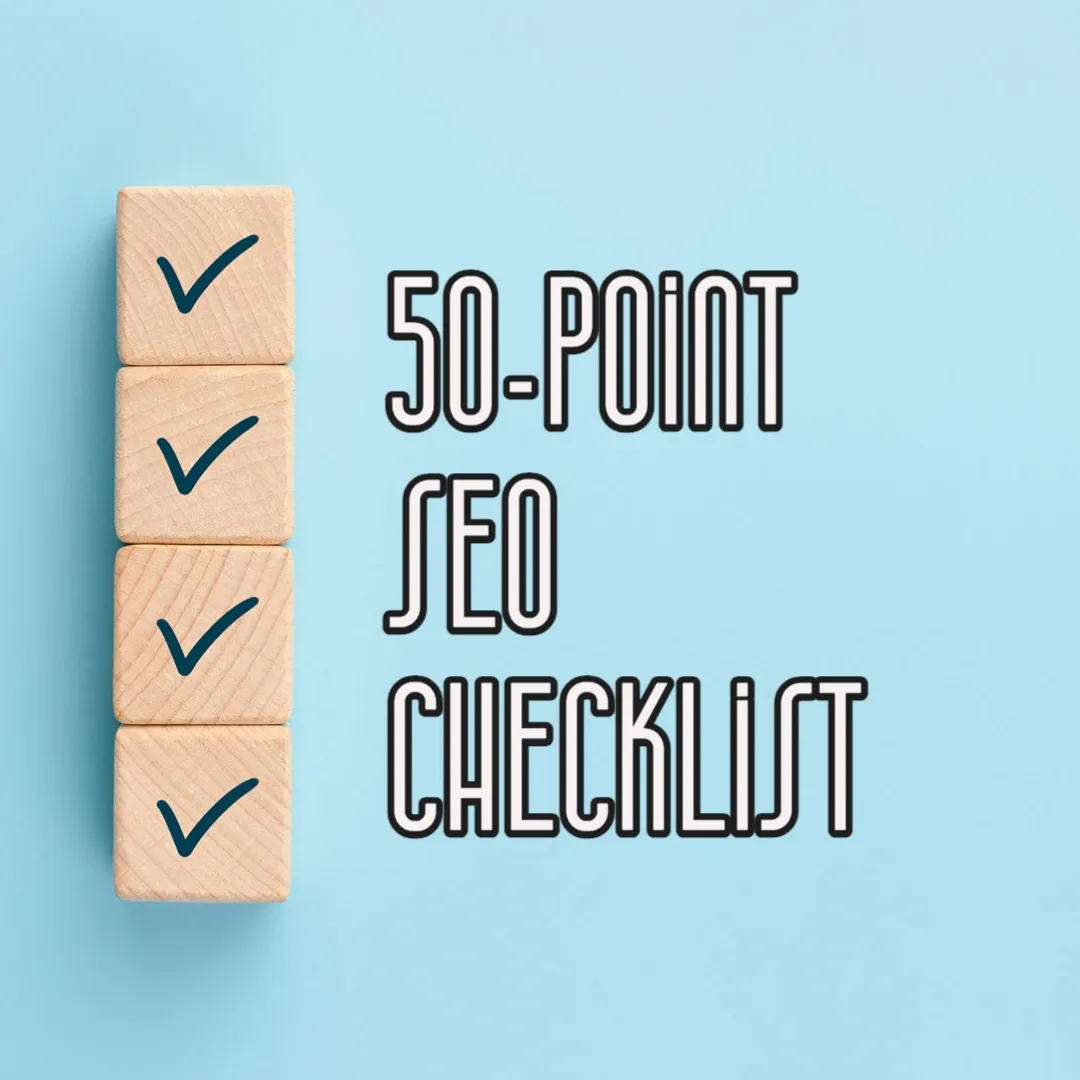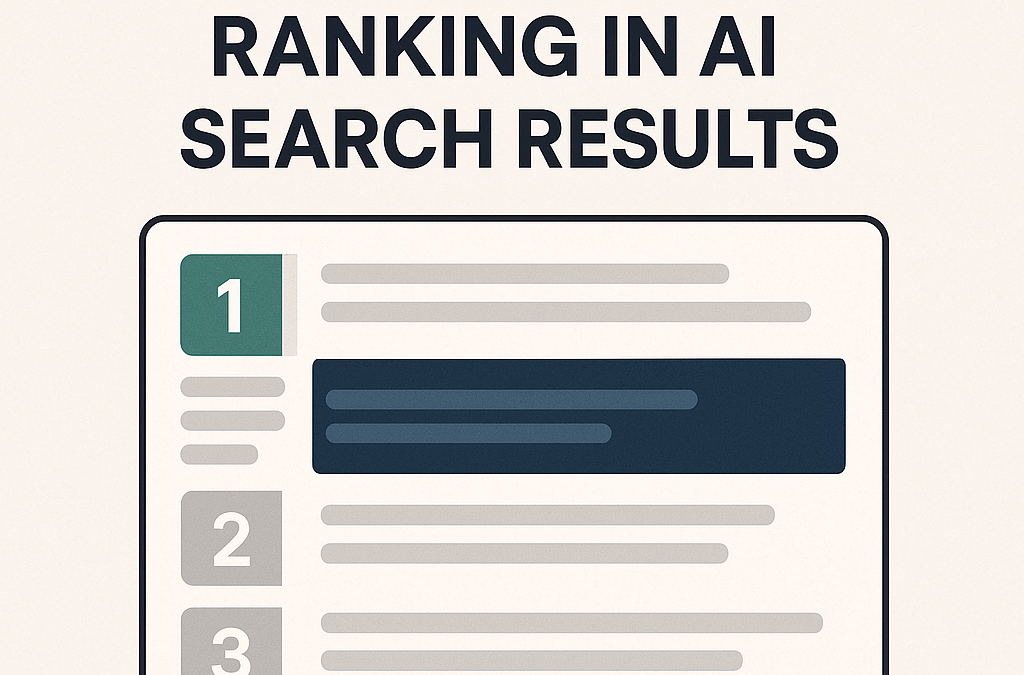As the digital world is expanding, Search Engine Optimization (SEO) is becoming increasingly crucial for businesses of all sizes. The right SEO strategies can help businesses improve their online visibility and reach their target audience, leading to more traffic, leads, and conversions.
To ensure that your website is optimized for search engines and is performing at its best, it is essential to follow a comprehensive SEO checklist. In this article, we have compiled a 50-point SEO checklist that will help you optimize your website and improve your search engine rankings.
- Keyword Research Keyword: research is the foundation of any SEO strategy. It helps you identify the most relevant and valuable keywords that your target audience is searching for. Use tools like Google Keyword Planner, Ahrefs, or SEMrush to find the right keywords for your business.
- Keyword Mapping: Once you have identified your target keywords, it’s essential to map them to the right pages on your website. Each page should have a unique target keyword that is relevant to the content on that page.
- On-Page Optimization: Optimize your web pages with the target keywords by including them in the title tags, meta descriptions, headers, and content. Ensure that your content is of high quality and provides value to the reader.
- URL Structure: Keep your URL structure simple, clean, and relevant to the content on the page. Avoid using long URLs with unnecessary parameters.
- Mobile Optimization: Ensure that your website is optimized for mobile devices. Google gives preference to mobile-friendly websites in its search results.
- Site Speed Site: speed is crucial for user experience and SEO. Use tools like Google PageSpeed Insights or GTmetrix to analyze and improve your website’s speed.
- Content Quality: High-quality content is essential for both users and search engines. Ensure that your content is well-written, informative, and adds value to the reader.
- Content Length: Long-form content tends to perform better in search engine rankings. Aim for at least 1000 words of content on each page.
- Content Structure: Organize your content into headings, subheadings, and bullet points. This makes it easier for users to read and improves your chances of ranking for featured snippets.
- Image Optimization: Optimize your images for search engines by using descriptive file names, alt text, and captions.
- Internal Linking: Link to other relevant pages on your website using anchor text. This helps search engines understand the structure of your website and the relationships between different pages.
- External Linking: Link to other authoritative websites using relevant anchor text. This helps establish your website as a trustworthy source of information.
- Schema Markup: Implement schema markup on your website to help search engines understand the content on your pages better.
- Robots.txt: Ensure that your website’s robots.txt file is correctly configured to allow search engines to crawl your site.
- XML Sitemap: Submit an XML sitemap to search engines to help them discover and index all the pages on your website.
- Canonical: URLs Use canonical URLs to avoid duplicate content issues.
- HTTPS: Ensure that your website is using HTTPS, as Google gives preference to secure websites in its search results.
- Google Analytics: Install Google Analytics on your website to track your website’s traffic, user behavior, and conversion rates.
- Google Search Console: Set up Google Search Console to monitor your website’s performance in Google search results and identify any issues that need to be fixed.
- Bing Webmaster Tools: Set up Bing Webmaster Tools to monitor your website’s performance in Bing search results.
- Social Media Presence: Maintain an active social media presence to drive traffic to your website and improve your online visibility.
- Google My Business: Create and optimize your Google My Business listing to improve your local search engine rankings and provide potential customers with valuable information about your business.
- Backlink Profile Monitor: and improve your backlink profile by acquiring high-quality backlinks from authoritative websites.
- Broken Links: Regularly check your website for broken links and fix them to improve user experience and search engine rankings.
- User Experience: Optimize your website’s user experience by improving page load times, navigation, and mobile-friendliness.
- Social Signals Social: signals can influence search engine rankings. Encourage social sharing of your content to improve your online visibility.
- Local SEO: If you have a local business, optimize your website for local SEO by including your business address, phone number, and reviews on your website.
- Video Content: Video content can help improve your search engine rankings and engage your audience. Include relevant videos on your website and optimize them for search engines.
- Voice Search Optimization: Optimize your website for voice search by using long-tail keywords and creating content that answers common questions.
- Site Architecture: Ensure that your website has a clear and logical site architecture that makes it easy for users and search engines to navigate.
- Content Freshness: Regularly update your website’s content to keep it fresh and relevant.
- Duplicate Content: Avoid using duplicate content on your website, as it can harm your search engine rankings.
- Site Security: Ensure that your website is secure by using strong passwords, SSL certificates, and other security measures.
- Content Promotion: Promote your content through social media, email marketing, and other channels to improve its visibility and reach.
- Meta Tags: Use relevant meta tags, such as meta titles and descriptions, to help search engines understand the content on your pages.
- ALT Tags: Use descriptive ALT tags on your images to help search engines understand the content on your pages.
- Outdated Content: Remove outdated content from your website to improve user experience and search engine rankings.
- URL Canonicalization: Ensure that your website’s URL canonicalization is properly configured to avoid duplicate content issues.
- Site Migration: If you are migrating your website to a new domain or hosting provider, ensure that you follow best practices for site migration to avoid any negative impact on your search engine rankings.
- Content Curation: Curate relevant content from other authoritative websites to supplement your own content and establish your website as a reliable source of information.
- Structured Data: Implement structured data on your website to help search engines understand the content on your pages better.
- Site Accessibility: Ensure that your website is accessible to users with disabilities by following web accessibility guidelines.
- Competitor Analysis: Regularly analyze your competitors’ SEO strategies to identify opportunities for improvement and stay ahead of the competition.
- Google Maps Optimization: Optimize your Google Maps listing to improve your local search engine rankings.
- Internal Search: Improve your website’s internal search functionality to make it easier for users to find what they are looking for.
- User Reviews: Encourage user reviews on your website and other review sites to improve your online reputation and search engine rankings.
- Content Syndication: Syndicate your content on other authoritative websites to reach a wider audience and improve your search engine rankings.
- Mobile App Optimization: If you have a mobile app, optimize it for search engines by including relevant keywords and optimizing the app’s title and description.
- Influencer Marketing: Partner with influencers in your industry to promote your content and improve your online visibility.
- Testing and Analytics: Regularly test and analyze your website’s performance and make data-driven decisions to improve your SEO strategy.
By following this comprehensive SEO checklist, you can improve your website’s search engine rankings and drive more traffic, leads, and ultimately, boost your online business success. Remember, SEO is a continuous process, and it requires consistent effort and dedication to see long-term results. Use the above checklist as a guide to ensure that your website is optimized for search engines and provides a positive user experience.
Additionally, there are many software tools available that can help you with various aspects of SEO, such as SEMrush, Ahrefs, Moz, and Google Analytics. By leveraging these tools, you can streamline your SEO efforts and achieve better results in less time.









